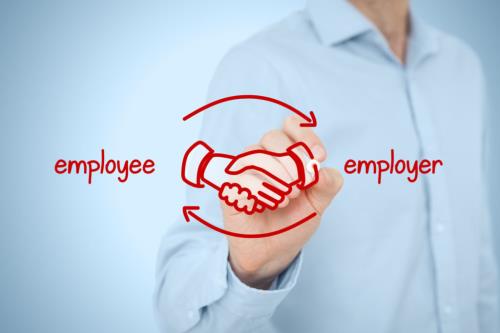We have all endured the boredom of lockdown and are pushing through the slightly less restricted level three.
 However, with restrictions posed to reduce even further over the coming weeks and months, people have started to cast their minds towards what happens next.
However, with restrictions posed to reduce even further over the coming weeks and months, people have started to cast their minds towards what happens next.
As about 400,000 workers returned to work under Alert Level 3 and other workers ready themselves to return to work once Alert Level 2 is declared, the obligations of imposing coronavirus protections are falling increasingly on employers.
Under Level 3 only "safe" workplaces can reopen. Such workplaces must implement a "safety plan" to determine how they address the risks of contracting and spreading Covid-19.
WorkSafe provides a broad range of issues for employers to consider ensuring they are minimising risks. It is likely that employers will have to continue to evaluate the risk of Covid-19 in the workplace for some time to come.
The responsibility of employers to implement health and safety measures are quite wide. Employers have a duty to ensure worker's safety as far as is reasonably practicable.
Alongside this, employees are obligated to comply with any reasonable instruction that is given by the employer to comply with their health and safety obligations, as far as the worker is reasonably able.
Covid-19 has forced employers to explore comprehensive measures for a danger they never would have anticipated. But what about the worker's other rights? The additional health and safety obligations placed on employers does not give them a free pass to breach other employment obligations.
For instance, a key part of preventing the spread of the virus is ensuring workers do not come to work if they are sick.
WorkSafe recommends implementing a system that provides a self-symptom check for workers and other people before they enter the workplace. Other workplaces are going further and checking the temperatures of workers and visitors to the workplace.
However, while it makes sense to check symptoms and temperatures to identify potentially ill individuals - this information is still personal medical information. Therefore, this information should be treated in accordance with the relevant rights of the individual employees.
In New Zealand, an employer cannot force an employee to undertake a medical examination, it can only request medical information.
However, where an employee is taking sick leave, after 3 consecutive days of sick leave an employer may ask for proof of illness and can ask for proof after just one day of leave if it is at the employer's cost.
In addition, where an agency like your employer holds personal information, they must only use it for the purpose they gathered it, and they must keep it confidential. In any event, an employer cannot discriminate against an employee on the basis of physical illness.
These rights may stand in the way of certain health and safety measures. In the United States, the law has been changed because of this. Because of Covid-19, the U.S. Equal Employment Opportunity Commission revised its rules preventing mandated medical examinations.
These changes now allow employers to take workers' temperatures whenever they want and to withdraw a job offer if a newly employed worker is diagnosed with Covid-19.
Do readers agree with these measures as they are serving public health objectives? Or is it a concerning infringement of key worker rights?
Another consideration with the implementation of Covid-19 prevention measures is how these impact an employee's general right to a healthy and safe workplace.
It is likely that there will remain inherent risks in most workplaces that must be addressed alongside the virus prevention measures.
For instance, some workplaces may seek to implement social distancing by reducing the number of workers in the workplace at any time. Such employers must consider whether this measure results in dangerous understaffing and how that new risk can be addressed.
Similarly, many office spaces may have to be adjusted to ensure appropriate distance between workspaces. However, this should not result in workers being placed in an unsuitable workspace, or a workstation where they cannot safely perform their role.
If that is an inevitable consequence, perhaps the employer should consider alternative measures such as staggered shifts, barriers or alternative configurations of workspaces.
Mental health is also an important consideration. Employers should ensure that virus prevention measures are not unreasonably impacting on employees' mental health - such as by causing undue stress, overworking or isolation.
If such risks are identified, they should be addressed so far as is reasonably practicable.
Employers must also consult with workers on health and safety measures. This can be a valuable process to identify auxiliary risks posed by virus prevention processes.
In addition, Government agencies such the Ministry of Health and WorkSafe have excellent guidance on returning to work that will assist.
Workers are the employer's most valuable asset, treasure them and they will respond abundantly. Many profound insights will come from your staff if they think you really care about them and their views.
The post-lockdown world will for many people be very different to our old world and we will have to adapt. Stay strong.

